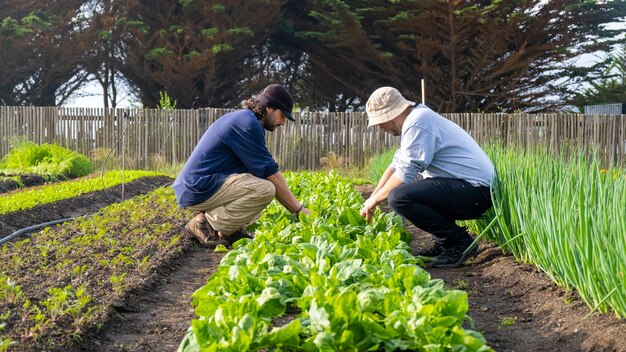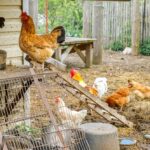Polyculture farming, the practice of growing multiple crops or raising diverse livestock together, is gaining attention among South African farmers. Unlike monoculture farming, which focuses on a single crop, polyculture fosters biodiversity and creates a balanced ecosystem. This approach offers numerous benefits, making it an excellent choice for South Africa’s diverse agricultural landscape.
1. Enhanced Soil Health
Polyculture farming promotes soil fertility and reduces degradation. Different plants have varying nutrient needs and contribute to the soil differently. For example:
- Legumes like beans or peas fix nitrogen, enriching the soil for neighboring crops.
- Deep-rooted plants, such as sunflowers, break up compacted soil and draw up nutrients for shallow-rooted crops.
This natural nutrient recycling reduces the need for synthetic fertilizers.
2. Pest and Disease Control
Polyculture minimizes pest outbreaks and diseases by disrupting the habitat of pests that thrive in monoculture setups. Companion planting is a common strategy in polyculture. For example:
- Marigolds can repel nematodes and other pests.
- Basil can deter whiteflies when planted with tomatoes.
Diverse crops make it harder for pests and diseases to spread, reducing reliance on chemical pesticides.
3. Increased Biodiversity
A polyculture system supports greater biodiversity, including beneficial insects, birds, and microorganisms. These species contribute to a balanced ecosystem by:
- Pollinating crops.
- Controlling pests naturally.
- Improving soil structure and fertility.
This biodiversity creates resilience against environmental stresses.
4. Higher Yields
Intercropping (growing two or more crops in proximity) in polyculture farming often leads to higher overall yields. For instance, planting maize alongside beans allows the maize to provide support for climbing bean plants, while beans enrich the soil with nitrogen. This efficient use of resources maximizes productivity per hectare.
5. Improved Economic Stability
Polyculture farming diversifies income streams, reducing financial risks. If one crop fails due to drought, pests, or market fluctuations, other crops or livestock can compensate for the loss. This diversification is particularly important for South African farmers facing unpredictable weather patterns.
6. Climate Resilience
In the face of climate change, polyculture farming provides greater resilience. Diverse crops can better withstand extreme weather events like droughts or floods. For example, drought-resistant crops can continue growing during dry periods, while other crops thrive in wetter conditions.
7. Efficient Land Use
Polyculture optimizes land use by combining crops with complementary growth habits. For instance:
- Tall crops like maize can provide shade for shade-tolerant crops like lettuce.
- Fast-growing crops like radishes can be harvested early, making room for slower-growing crops like carrots.
This layered approach maximizes productivity on small plots of land.
8. Reduced Input Costs
Polyculture farming lowers the need for external inputs like fertilizers and pesticides, thanks to natural nutrient cycling and pest control. Additionally, the reduced dependency on single crops decreases the risk of crop failure, lowering overall farming costs.
9. Environmental Sustainability
By mimicking natural ecosystems, polyculture farming reduces the environmental impact of agriculture. It helps conserve water, reduces soil erosion, and lowers greenhouse gas emissions. This aligns with South Africa’s goals for sustainable farming practices.
10. Community and Food Security
Polyculture farming contributes to local food security by providing a diverse range of crops. Farmers can grow staple foods alongside nutrient-rich vegetables and fruits, offering a balanced diet to their families and communities.
For South African farmers, polyculture farming offers a sustainable and profitable alternative to traditional monoculture systems. By enhancing soil health, reducing pests, and increasing resilience to climate change, polyculture ensures long-term productivity and environmental sustainability. Adopting polyculture farming not only benefits the farmer but also supports the nation’s food security and ecological balance.
Join 'Farmers Mag' WhatsApp Channel
Get the latest Farming news and tips delivered straight to your WhatsApp
CLICK HERE TO JOIN






